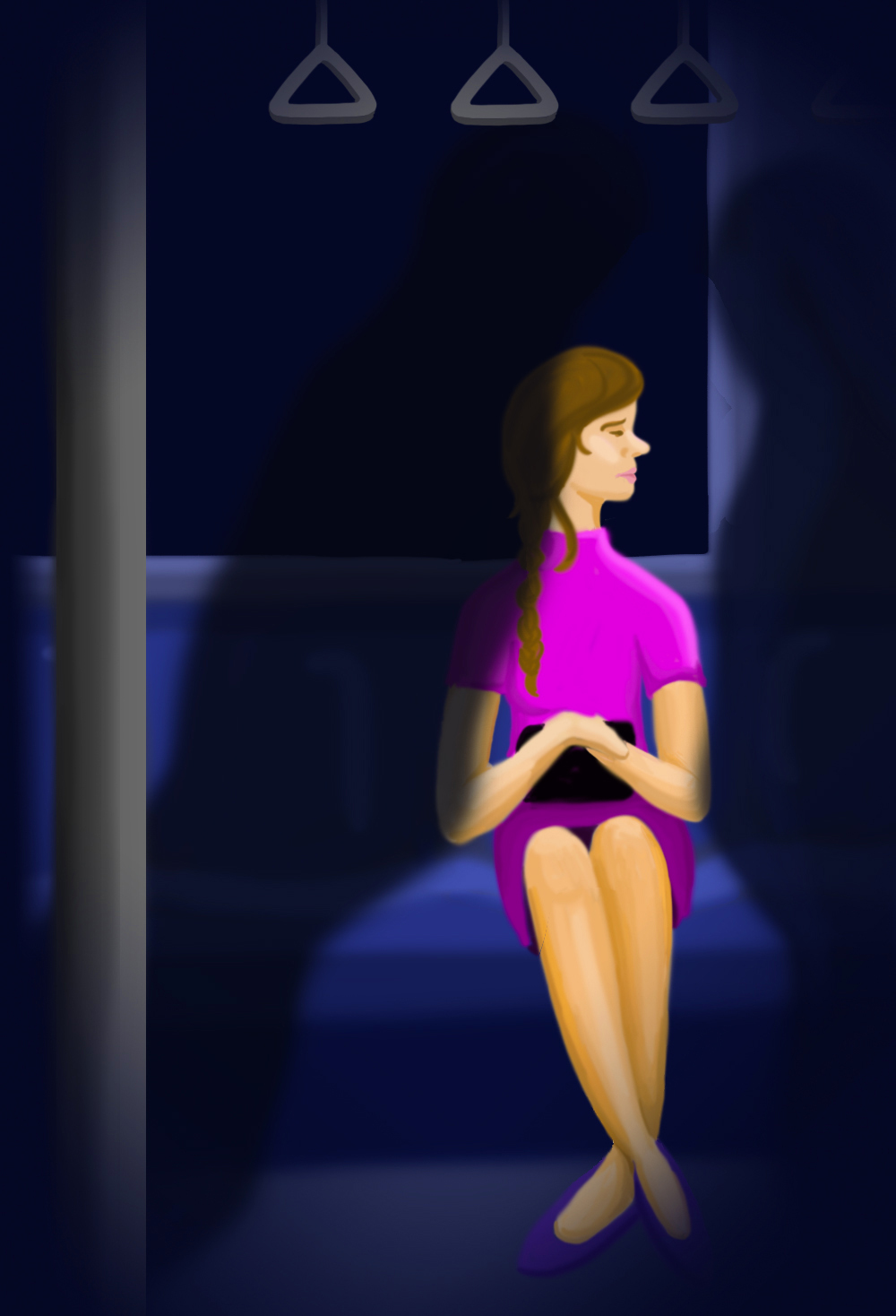LA Metro could do more to help women using public transportation feel safer

(Andrea Grigsby/Illustrations director)

By Navdeep Bal
Oct. 28, 2019 10:04 p.m.
Being alone at night at an empty bus stop. A suspicious man who won’t stop staring. Clutching the Mace just in case.
These are experiences too many women are familiar with, and these incidents are only further heightened on public transit.
Los Angeles Metro recently released an extensive report, which found that women generally felt less safe on public transit when compared to men. The report, “Understanding How Women Travel,” found that 25% of female bus riders and 41% of nonbinary bus riders reported experiencing sexual harassment in six months, based on a spring 2018 survey. Of female and nonbinary rail riders, 33% and 29% reported sexual harassment, respectively.
And the severity doesn’t stop there. LA Metro reported that 145 sex offense crimes and 14 rapes were reported on Metro transit lines or in Union Station between October 2017 and September 2018.
Women feel unsafe on public transit, and for good reason.
The issue of women’s safety on public transportation must be dealt with effectively and urgently. LA Metro has already begun making changes, such as added light fixtures, but it is vital that these changes are granted enough funding and manpower to be meaningful and sustainable. Moreover, changes to the system must be continuously observed to ensure there is forward progress – and to continue work if there is not.
Improving safety on public transportation should be a priority, especially when many don’t have alternative options.
LA Metro’s report found that 59% of female bus riders were below the federal poverty line, meaning low-income women are more susceptible to harassment. If people don’t have the safe option of public transit, they are subsequently cut off from economic opportunities, such as jobs or interviews, or are forced to pay more with ride-sharing services – which by no means guarantees safety.
Public transit affects UCLA students, too.
Bruins rely on university-subsidized options such as Go Metro, and their safety needs to be guaranteed. A 2016 UCLA report found that 17% of UCLA employees and 28% of UCLA student commuters used buses in 2016 as part of their daily travel to campus.
Angie Mercado, a third-year ecology and evolutionary biology student, said women have to dress differently in order to avoid harassment.
“My parents will be like, ‘Don’t wear a skirt when you go on the bus,’” Mercado said. “Men are staring at you – you have to be more careful about what you look like.”
The fact that parents feel the need to have this conversation is a sad reality, and an all-too-common occurrence within an environment that further perpetuates rape culture. Women should not feel as if they are the ones to blame if they ever become a victim, just because they decided to wear a dress that day or take a different route.
After all, no one would think to sacrifice their basic safety simply to get around the city.
Unless they’re a woman in LA, that is.
Hena Sihota, a third-year neuroscience student, said it’s important that riders speak up when situations arise.
“There’s a camera (on the BruinBus), and there’s drivers reporting, so I feel like as long as the riders and the drivers are diligent in reporting, then stuff happens,” Sihota said. “But if everyone stays quiet, then in that particular situation, nothing would’ve been resolved.”
And with an environment rooted in every passenger minding their own business, bystanders might not always feel welcome to report crimes.
LA Metro does provide hotlines and apps to report incidents, but it is important that these resources are effective. A barrier to effective reporting lies in the legal definition of harassment, which is not considered criminal behavior.
Brian Haas, a communications manager for Metro Media Relations, said different safety precautions, such as increased Metro security and light fixtures at stops, have been implemented recently.
“In December, we’re going to be releasing an upgraded and improved (LA Metro) Transit Watch app,” Haas said. “That’s our app that is designed to help people stay safe and has the option to report incidents they see, get help (and) call security,”
But while apps could help, it’s the culture and infrastructure of the Metro that needs to change in order to ensure rider safety. And for the large low-income population that uses the Metro, a smartphone-based app might be inaccessible in the first place.
Unsurprisingly, expanding funding is still a good start.
“Earlier this year, we received a $600,000 federal transit administration grant, and we were able to upgrade lighting at 18 locations,” Haas said.
Clearly, LA Metro has acknowledged these issues, and it has taken the first step by creating this report and taking measures. But now, it is vital these changes are actually implemented and done so properly and quickly. The riders of LA Metro can’t afford to waste time waiting for security measures to eventually come in, nor do they deserve for these changes to be surface-level.
Of course, this problem isn’t just an LA Metro issue. Sexual harassment and violence affect women across the world, in all aspects of life – including mundane daily routines such as getting from point A to point B.
But as the city’s primary hub for public transportation, LA Metro has a responsibility to do better for the women that use it. This endless cycle will continue to hurt the most vulnerable individuals until the problem is fixed. And if people don’t use public transportation because they feel unsafe, there will be less funding to provide those necessary safety measures.
With the way things are, the arteries of LA public transit are decaying.
And as they do, women’s safety decays with them.

